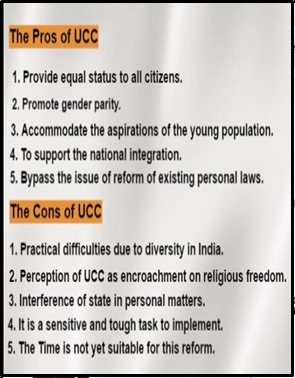CALL FOR SECULAR CIVIL CODE GAINS MOMENTUM
Why in the news?
Prime Minister Modi calls for a secular civil code in India, emphasising its role in eliminating religious discrimination, alongside addressing women’s safety and minority security concerns.
Highlights for a Secular Civil Code in India:
- Prime Minister Narendra Modi has called for the introduction of a “secular civil code” in India, arguing that laws based on religion, which foster discrimination, are outdated.
- In his Independence Day speech, Modi emphasised that transitioning from a communal to a secular civil code would help eliminate religious discrimination and address gaps in the current system.
- The proposed code would standardise laws across different religions, covering areas such as marriage, divorce, inheritance, and maintenance.
- This initiative aligns with the BJP’s ideological goals and was a key promise in their 2024 election campaign.
- Uttarakhand has already enacted the UCC, though full implementation is pending.
source:researchgate
| What is UCC (Uniform Civil Code)?
Definition:
Legal Hurdles:
Social Issues:
|




